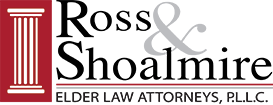
Taking an idea, turning it into a business, and building your own company from the ground up is no small feat. If you’ve spent years pouring your blood and sweat into an enterprise, you may not have had the time to consider a future where your business still exists, but you’re no longer around to run it. Keeping it in the family or selling assets to provide an inheritance are common and convenient solutions, but they’re solutions that fall flat if they’re not done right.
Read more to learn how to use Estate Planning to protect your family business, or contact Ross & Shoalmire today to speak to an attorney and schedule your initial consultation.
Estate Planning and Your Family Business
Your estate plan is a written set of instructions for how the assets you own should be redistributed after your death. Estate plans vary immensely in purpose and complexity, but they can be used to disburse any combination of personal belongings, financial accounts, and business assets.
However, while you only need one estate plan, you can’t use the same strategy to protect very different types of assets. Instead, you need to assess and consider:
Your Priorities as an Individual
Your estate plan can do more than protect your personal belongings and business assets. Depending on your individual needs, values, and aspirations, an estate plan could be leveraged to:
- Appoint an executor
- Leave an inheritance
- Disinherit an heir
- Nominate a guardian for your minor child
- Tell your family what type of medical care you should receive if you’re ever critically injured or terminally ill
You can typically ensure that your priorities are respected by taking simple steps, such as writing a last will and testament, delegating different powers of attorney, authorizing an advance care directive, and establishing a conditioned living trust.
Your Needs as an Independent Business Owner
Family businesses, no matter their size, can be extraordinarily complex enterprises.
As a business owner, you may need to consider the potential for conflicts of interest that most other people don’t have to worry about when drawing up their estate plans. An estate plan could help manage and mitigate the risk inherent to:
- Probate. Probate is the formal process of dissolving a deceased person’s estate. During probate, any interested party with standing—a disinherited child, or even a predatory lender—could file a lawsuit against your estate. If you anticipate claims arising from business-related liabilities, you must keep your personal and commercial interests separate.
- Distributing complex assets. You may own tangible and intangible business assets, ranging from intellectual property to financial accounts, motor vehicles, and real property. Each distinct type of asset must be addressed in your estate plan. Furthermore, some assets—especially property—may be easier to either transfer or liquidate if they’re managed by your own trust.
- Complying with tax laws. Your estate may incur tax liabilities if assessed beyond a certain value. Furthermore, if your business continues to operate, somebody must keep paying its taxes until ownership can be transferred to your heir or heirs.
Your Family’s Unique Circumstances
If you plan to keep your family business in the family, you’ll also need to account for the dynamic between your surviving heirs and beneficiaries. Oftentimes, this involves asking questions such as:
- If I leave my business to one or two of my children, what will I leave my remaining heirs?
- Should all of my children receive an equal share of stocks or assets, or should I prioritize heirs with a more active role in the business?
- Is one of my children better suited to an ownership or leadership role than the others?
- If I can’t trust my heirs to keep my business running and profitable, should I arrange to sell my business assets and use the proceeds to provide a cash inheritance?
The complexities of all these different factors—your individual aspirations, your needs as a business owner, and your family’s unique circumstances—should inform the decisions you make and the strategies that you employ in your estate plan.
5 Estate Planning Strategies for Small Business Owners
Although there is no one-size-fits-all solution to estate planning, some strategies work well for most small business owners. These include, but are not limited to, the following:
1. A Last Will and Testament
Your last will and testament is an essential estate planning document that lets you nominate an estate executor, appoint a guardian for your minor child, and name different heirs and beneficiary. In the more specific context of a business, a will can be used to:
- Ensure that your estate remains safe from intestacy
- Distribute ownership shares that are not yet held by a trust
- Explain why you have made certain inheritance decisions
If you don’t have a trust, writing a will is often the only way to ensure that your estate is not subject to the rules of intestate succession, which divide your assets in accordance with a strict legal formula rather than the reality of your family dynamic.
2. Family Limited Partnerships (FLPs)
Texas and Arkansas let business owners establish family limited partnerships, or FLPs. Most FLPs have a fairly simple structure, consisting of:
- General partners, or partners who manage the business and play a critical role in its operation.
- Limited partners, or partners with an ownership interest but who do not participate in business management or decision-making.
Family limited partnerships can be used to ensure that only your most experienced heirs retain a say in running the family business, but they can also be leveraged for other purposes. FLPs can, for instance, provide enhanced asset protection by firmly separating business-related liabilities from personal liabilities.
3. Grantor-Retained Annuity Trusts (GRATs)
A grantor-retained annuity trust, or GRAT, is an irrevocable trust funded by a one-time contribution of assets by a grantor. After the GRAT has been funded, you—the grantor—will be paid a set percentage annuity for a predetermined period of time. Once this time has elapsed, any remaining assets are transferred to your beneficiaries.
The advantage of a GRAT is simple: although your GRAT will still be liable for gift tax, the rate of taxation is based on the amount of your initial contribution and the remainder interest. In some cases, well-funded GRATs can appreciate in value, offering high returns to your beneficiaries with the excess exempt from tax.
4. Irrevocable Life Insurance Trusts (ILITs)
An irrevocable life insurance trust, or ILIT, is a trust that can only be used to manage life insurance policies. Upon transferring a life insurance policy to an ILIT, the ILIT becomes the sole owner and beneficiary. After you pass away, the ILIT will be entitled to receive death benefits—death benefits that will be disbursed in accordance with the terms of your trust and to beneficiaries you selected.
ILITs can help solve two problems: first, by removing the value of death benefits from your estate, they can help reduce estate taxes. Secondly, the policy’s cash value can be used for a variety of purposes, such as paying anticipated estate taxes or providing an alternative inheritance for an heir.
5. Alternative Inheritances
If you aren’t sure how to pass on your family business without leaving some of your heirs empty-handed, the experienced Estate Planning Lawyers at Ross & Shoalmire could help you explore alternate strategies for inheritance. These could include, but are not limited to, the following:
- Establishing a simpler, more cost-effective revocable living trust to condition inheritances
- Leveraging life insurance policies and other non-estate assets to provide a cash-equivalent inheritance to heirs who won’t be receiving shares in the family business
- Incorporating provisions into your estate plan that make it more difficult for creditors and disgruntled heirs to lay claim to business assets and income
You don’t have to take chances with the business you built: our Estate Planning Lawyers could help.

